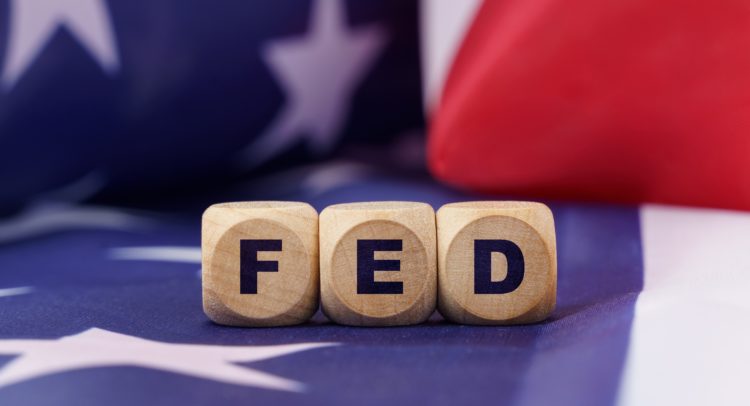Is today, December 14, the most important day of the year for the financial markets? It just might be, as the Federal Open Market Committee (FOMC) met to determine an appropriate increase for the federal funds rate, and Federal Reserve Chairman Jerome Powell spoke on a potential path for next year’s monetary policy.
Elevate Your Investing Strategy:
- Take advantage of TipRanks Premium at 50% off! Unlock powerful investing tools, advanced data, and expert analyst insights to help you invest with confidence.
As you may recall, the Federal Reserve (or “Fed”) raised the benchmark interest rate, which many other U.S. interest rates are based on, by 75 basis points (bps) or 0.75% in November. That was the fourth consecutive 75 bps rate hike, so the market hoped and expected that the Fed would ease up in December with a less restrictive 50 bps interest rate raise.
However, the possibility of a fifth consecutive 75 bps rate hike wasn’t entirely out of the question. Last week, the Institute for Supply Management (ISM) reported that the U.S. services sector expanded in November. Plus, the Producer Price Index (PPI) for November came in higher than anticipated, indicating 6.2% growth last month, excluding food and energy. On the other hand, the November Consumer Price Index (CPI) came in at 7.1% versus the 7.3% that economists had expected. So, how did the FOMC, Powell, and the major stock market indices react today?
Get Ready for Consistent Rate Hikes in 2023
As it turns out, the market got its expected 50-basis-point increase in the federal funds rate. This wasn’t a huge surprise, though some investors probably were alarmed to discover that the Federal Reserve plans to increase the benchmark interest rate to as much as 5.1% in 2023 and as high as 5.25% eventually before the “big pivot” to interest-rate cuts finally happens. In September, the Fed had only anticipated a terminal federal funds rate of 4.75%. On the FOMC’s “dot plot” chart, 17 out of 19 “dots” or votes indicated that Federal Reserve officials would take the federal funds rate above 5% in 2023.
Powell spoke soon after the dot plot was released, and his tone was decidedly measured and cautious. The Fed chairman gave no indication of imminent interest-rate cuts for 2023, and he remains data-dependent but committed to continuing the FOMC’s path of interest-rate increases throughout the coming year. However, Powell described today’s 0.5% federal funds rate hike as “sufficiently restrictive,” so investors might not need to fear 75-basis-point rate hikes in the near future (though anything’s possible).
By 3:00 p.m. Eastern time, the S&P 500 (SPX) and Dow Jones Industrial Average (DJIA) had turned from green to red but were only down for the day by around one-third of a percent. Meanwhile, the Nasdaq 100 (NDX), which is typically more sensitive to interest-rate policy changes, declined around half a percent.
The main takeaway from Powell today was that he and his colleagues at the FOMC are still committed to getting inflation, as measured by the CPI, down to 2%. There’s still a long way to go, so don’t expect the central bank to relent in its policy-tightening anytime soon.
















